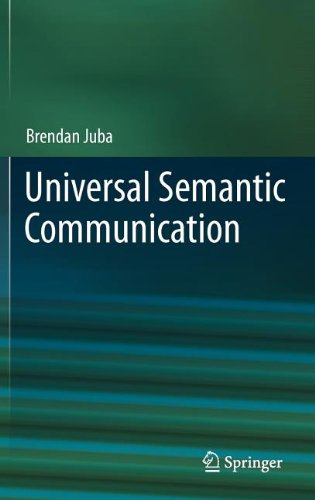

Most ebook files are in PDF format, so you can easily read them using various software such as Foxit Reader or directly on the Google Chrome browser.
Some ebook files are released by publishers in other formats such as .awz, .mobi, .epub, .fb2, etc. You may need to install specific software to read these formats on mobile/PC, such as Calibre.
Please read the tutorial at this link: https://ebookbell.com/faq
We offer FREE conversion to the popular formats you request; however, this may take some time. Therefore, right after payment, please email us, and we will try to provide the service as quickly as possible.
For some exceptional file formats or broken links (if any), please refrain from opening any disputes. Instead, email us first, and we will try to assist within a maximum of 6 hours.
EbookBell Team

4.0
36 reviewsIs meaningful communication possible between two intelligent parties who share no common language or background? In this work, a theoretical framework is proposed in which it is possible to address when and to what extent such semantic communication is possible: such problems can be rigorously addressed by explicitly focusing on the goals of the communication. Under this framework, it is possible to show that for many goals, communication without any common language or background is possible using universal protocols.
This work should be accessible to anyone with an undergraduate-level knowledge of the theory of computation. The theoretical framework presented here is of interest to anyone wishing to design systems with flexible interfaces, either among computers or between computers and their users.